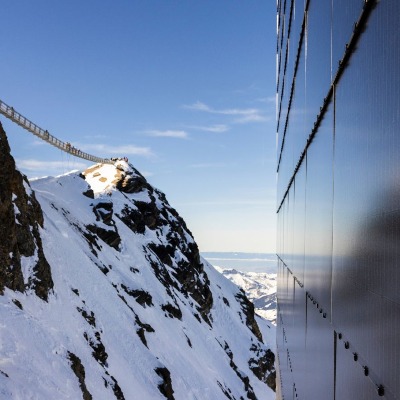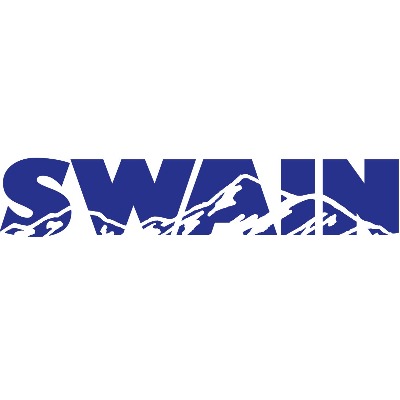Jungfrau Railway Group Suffers Loss For First Time In Company's History

The Jungfrau Railway Group suffered a loss for the first time in the company's history in the 2020 financial year. The loss of 9.7 million francs follows the record profit of 53.3 million francs in 2019. On the positive side, it was possible to achieve a positive EBITDA of 22.3 million francs in 2020, which was marked by Covid-19. Due to the current situation, the Board of Directors proposes not to pay a dividend. The consequences of the corona crisis are more pronounced and longer lasting than previously assumed and remain difficult to assess. It must be assumed that the result in 2021 will again be strongly influenced by the Corona crisis.
The company is solidly positioned in terms of liquidity and equity. With a positive EBITDA of CHF 22.3 million, operational liquidity is guaranteed. It is gratifying that this was achieved in an extremely challenging environment with a historically unique pandemic. Covid-19 not only resulted in an almost three-month lockdown on the tourist railways, the largest guest segment from Asia also collapsed completely after the outbreak of the pandemic in March 2020. The Jungfrau Railways was able to close the exceptional year with a high point with the completion of the V-Bahn generation project.
Overall, the Jungfrau Railway Group generated an operating income of 125.7 million francs, which corresponds to a decrease compared to the record year 2019 of 97.6 million francs. The most important source of income, traffic income, amounted to 75.6 million francs and was 86.2 million francs lower than in 2019. With a decrease of 65.6%, traffic income from the most important segment, Jungfraujoch-Top of Europe, suffered particularly badly the collapse of the international travel business.
Traffic revenue at the Adventure Mountains fell by around half, although the Harderbahn subsidiary fortunately achieved a profit of 1.0 million francs and Firstbahn made a profit of 2.0 million francs. The traffic revenue from the winter sports passes only fell by 5.2%.
The Jungfrau Railway Group initiated cost-saving measures very early on. The operating costs and investments were continuously checked and reduced. As a result, and thanks to the use of short-time working, operating expenses were reduced by 14.1% to 103.4 million francs. This was despite the fact that new, additional business activities were undertaken in the reporting year with the takeover of the catering operations on the Jungfraujoch and the management of the Grindelwald-Männlichen gondola lift.
Depreciation amounted to CHF 33.5 million. Correspondingly, the operating result EBIT was -11.2 million francs and the annual loss -9.7 million francs.
The consolidated balance sheet as of December 31, 2020 shows equity of CHF 597.0 million. This corresponds to a very solid equity ratio of 72.9%. Debt of CHF 221.7 million includes financial liabilities of CHF 109.3 million. Of this, only CHF 45.0 million are interest-bearing bank liabilities. The remaining 64.3 million are non-interest-bearing, mostly conditionally repayable public-sector loans to finance rail infrastructures.
Jungfraujoch - Top of Europe
In the first year of the pandemic, the Jungfraujoch - Top of Europe remained the most important segment of the Jungfrau Railway Group, although the negative effects of Covid-19 were most serious in this segment. Net sales fell by 80.6 million francs, or 53.8%, to 69.2 million francs. After record frequencies in January, demand already weakened in February. After the officially ordered closure from March 14th to June 5th, 2020, the guest structure was no longer comparable to the time before the outbreak of Covid-19 until the end of the year. The number of Jungfraujoch guests was reduced by 65.6% to 362,800. It was gratifying that around 153,000 guests visited the Jungfraujoch - Top of Europe in July and August 2020 alone, of which around 145,000 were Swiss.
Adventure mountains
At the Adventure Mountains, net sales in 2020 fell by 48.3% to 16.8 million francs and EBITDA by 69.0% to 5.8 million francs. All railways - the Harderbahn, the Firstbahn and the Lauterbrunnen-Mürren mountain railway - recorded significant falls in sales. The losses suffered during the lockdown could not be compensated for by numerous Swiss guests in the summer months, despite attractive frequencies.
Winter sports
The effects of Covid-19 were lowest in the winter sports segment. The number of ski visits in the entire Jungfrau Ski Region (cooperation product in which the Jungfrau Railway Group has a stake of over 60%) fell by 16.0% to 898 compared to 2019 due to the abrupt end of the season on March 14, 2020. 400 ski visits. The group's share of the transport revenue decreased by just 5.2% to CHF 22.2 million. With net sales of 29.7 million francs, the winter sports segment achieved an EBITDA of 3.7 million francs, which corresponds to an increase of 2.0 million francs compared to the previous year.
Investments
The total investment volume of the Jungfrau Railway Group last year was CHF 123.7 million. Of this, 91.3 million francs went to the V-Bahn project. With the opening of the terminal, the new multi-storey car park and the modern 3S-Bahn Eiger Express on December 5, 2020, the generation project was successfully put into operation.
In total, the company has so far invested around 340 million francs in the V-Bahn project, which, in addition to the core elements, includes the previously completed rolling stock renewals on the Wengernalp and Jungfrau railways. The investments are not yet fully completed. Overall, a cost overrun of approx. 10% (namely project adjustments and difficult building conditions) compared to the original planning is expected.
The second major project in the Jungfrau Railway Group is the renewal program of the Lauterbrunnen-Mürren mountain railway, which is financed by the Canton of Bern as part of the transport eligible for compensation. The entire renovation of the Mürrenbahn is estimated to cost a good 50 million francs. In 2020, 9.9 million francs were invested in the expansion of the Grütschalp station and workshop as well as in the modernization of the Winteregg station. At the end of the year, three low-floor multiple units could also be ordered, which will go into operation in 2023.
The station concourse on the Jungfraujoch will be renewed by spring 2021. 7.1 million francs were invested in this in the year under review. At the Harderbahn, the drive and control of the funicular will be renewed, which in 2020 triggered investments of 1.6 million francs.
As a result of the high investment volume, the free cash flow was CHF -93.3 million. Despite the Covid 19 crisis, the investment program was largely financed from its own resources.
outlook
The Jungfrau Railway Group still has to deal with the Corona crisis. This has been going on for over a year and its consequences are still difficult to assess and predict. The effects are more pronounced and last longer than previously thought. The biggest risks remain the travel restrictions, the lack of planning security and the globally different vaccination strategies.
Nevertheless, thanks to a good infrastructure, strong anchoring in international markets, solid financing and its innovative strength, the Jungfrau Railway Group can look to the future with confidence. The V-Bahn generation project, which was completed at the end of 2020, makes the Jungfrau Railway Group competitive at the forefront and thus forms an important basis for quickly profiting from the growth opportunities that arise after the crisis. The V-Bahn strengthens the competitiveness of the entire Jungfrau Region in the long term.
The guests are offered more space, a pleasant tour guide and, overall, a better quality travel experience. The active and digitally supported guest steering results in a gain in time and convenience. The railways can actively reduce mass accumulations and traffic jams and make the best possible use of existing capacities. Thanks to the new connection to the railway network, the use of public transport is promoted. The Jungfrau Railway Group is thus making an important contribution to bringing back to the rail the guests who have increasingly switched to private transport due to Covid-19.
The Jungfrau Railways has experienced various global crises in its 100-year history. With the revision of the cost structures and the greater flexibility as well as the good start of the V-Bahn, the company will emerge stronger from the crisis. It must be assumed that the result in 2021 will again be strongly influenced by the Corona crisis. The central objective of the Jungfrau Railway Group remains to achieve a positive EBITDA.
Annual report and proposals to the AGM
The General Assembly of Jungfraubahn Holding AG will be held on May 17, 2021 in Interlaken. It will be held entirely to the exclusion of physical participation by shareholders. The shareholders are informed about the form of the General Meeting and the procedure for voting by means of a personal invitation and publication in accordance with the Articles of Association. Due to the current situation, the Board of Directors proposes not to pay a dividend.
The annual report of Jungfraubahn Holding AG was created as an online edition for the 2020 reporting year. The online annual report is published under the following link:













